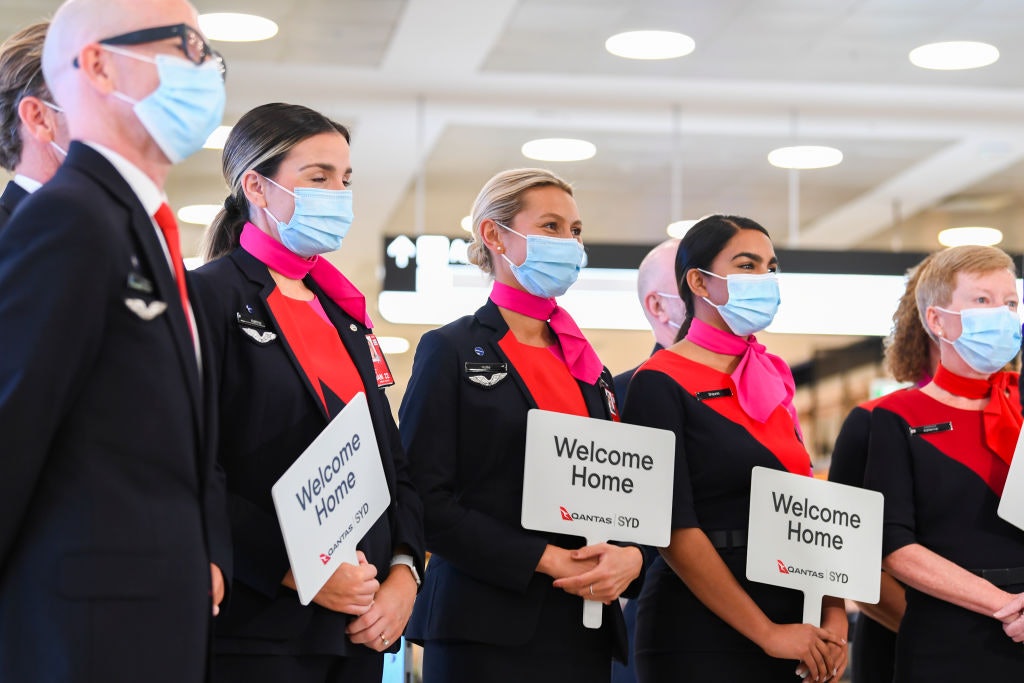Australia is ready to be explored as the last state reopens its border

Mar 3, 2022 • 3 min read

Western Australia reopened its borders today © Shutterstock
After nearly 700 days, Western Australia has lifted its hard border and is now permitting travelers to visit.
While Australia reopened its borders to international tourists last week, Western Australia lagged behind. Labeled the "hermit kingdom" due to its hard border rules, Australia's most remote state largely disconnected from the outside world and kept both domestic and international travelers out in order to keep the virus at bay.
That situation has changed today (March 3) as Western Australia emerges from isolation, becoming the last state to drop its travel entry ban.
“Australia is now finally back together,” Qantas Airways chief executive Alan Joyce said. “This day has been a long time coming.”
Travelers are free to visit without quarantine, but they'll need to abide by slightly different entry rules. While Australia generally requires travelers to be at least double vaccinated to visit, Western Australia wants proof of three doses.
If you're planning a visit to Australia, here's what you need to know about its entry rules.
When can I travel to New Zealand? Opening dates announced for 2022

What vaccines are accepted for travel to Australia?
To be considered fully vaccinated, arrivals must have received at least two doses (including mixed doses) of an approved vaccine which includes AstraZeneca, Pfizer, Moderna, Covax, Coronavac, Sputnik, Sinopharm, or Novavax, or one dose of a Johnson & Johnson vaccine. At least seven days must have passed since the final dose.
The rules are stricter for travel to Western Australia. The state requires that travelers are triple-vaccinated, complete a G2G pass before travel and take a COVID-19 test within 12 hours of arrival.
The latest Australia health and safety information
Do children have to be vaccinated to travel to Australia?
Children over the age of 12 are expected to show proof of full vaccination to travel to Australia. Though arrangements are in place in some states and territories to allow unvaccinated or partially vaccinated children aged 12-17 years to travel with a fully vaccinated adult. Children aged under 12 years are exempt.

How to present proof of vaccination to travel to Australia
People who were vaccinated in Australia can present their International COVID-19 Vaccination Certificate (ICVC) to airline staff before boarding their flight. Overseas travelers can present their own official vaccination certificates.
Are COVID-19 tests required?
Yes, everyone over the age of five must present a negative PCR test result before flying to Australia. The results can be uploaded online, or presented to airline staff, during the check-in process. The test must be taken no later than 72 hours "before the scheduled departure of your first international flight", according to the Australian Embassy.
Travelers visiting Western Australia must take a test within 12 hours of arrival if entering by air (or 24 hours if not entering by air).
Do arrivals need to quarantine?
Quarantine has been scrapped for fully vaccinated arrivals, though unvaccinated arrivals have to quarantine (except in Western Australia where unvaccinated travelers are banned). Some states and territories have at-home quarantine measures in place for children aged between 12 and 17 who are not fully vaccinated.
To check requirements, see State and Territory Information for travelers.

What airlines are flying to Australia?
Major airlines such as Hawaiian Airlines, Etihad, Emirates and Air New Zealand have been ramping up operations since Australia started to reopen in November. Qantas Airways, Australia's national carrier, is operating three weekly return flights between Sydney and London and three weekly return flights between Sydney and Los Angeles to meet "pent up demand". Expect more to announce new schedules.
You might also like:
Thailand changes its entry rules again - allowing more tourists to visit without quarantine
These Southeast Asian tourist spots are open - here's how to get there
Australia's newest national park will protect endangered species




